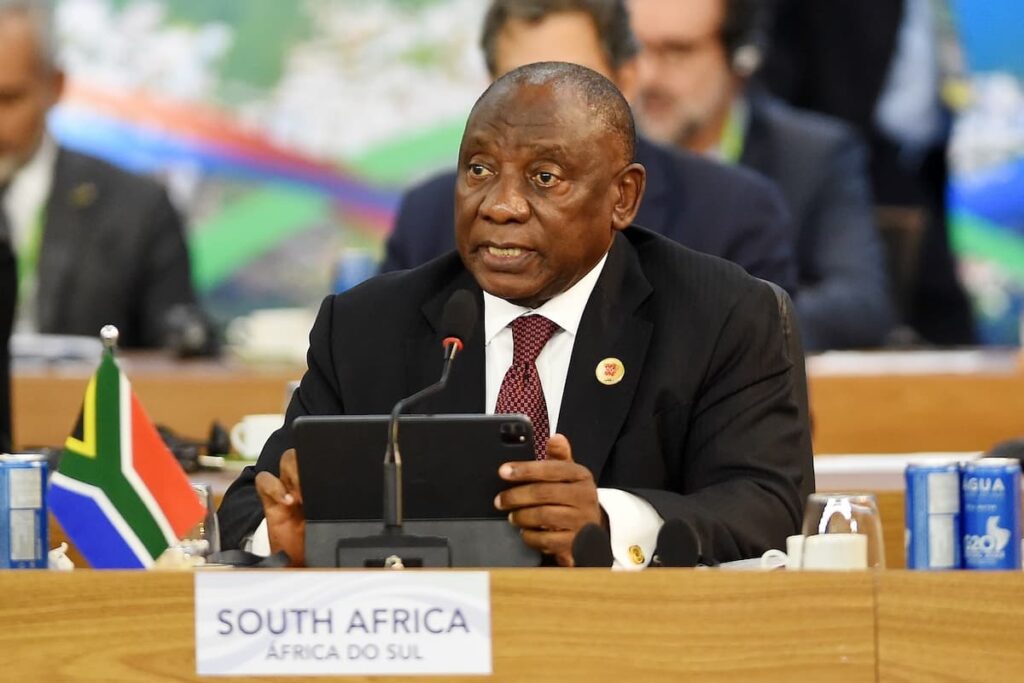Tensions between South Africa and the United States have reached a boiling point in recent months, prompting an official visit from South African President Cyril Ramaphosa to Washington. The visit comes at a critical time, as Pretoria aims to rebuild a fragile relationship with the US administration following a series of controversial policy decisions and public statements that have shaken diplomatic ties.
Rising Diplomatic Tensions
The South African government has expressed increasing concern over the deterioration of its relationship with the United States. The turning point came after the US government granted refugee status to dozens of white Afrikaners, citing alleged racial persecution in South Africa. This action followed repeated claims from the US president about a supposed genocide targeting white farmers — a claim that has been discredited by both South African authorities and international experts.
The refugee decision has been met with strong disapproval in Pretoria. South African officials maintain that there is no targeted violence against white communities and that the country, like many others, struggles with violent crime across all demographics. The framing of these refugees as victims of racial violence has been interpreted by South African leaders as a misrepresentation of the nation’s complex social and economic issues.
Contentious Policies and Misunderstandings
Relations were further strained when the US administration issued an executive order to suspend all financial aid to South Africa. The justification given included opposition to South Africa’s land reform policies and its recent actions on the global stage, including a high-profile legal case filed against a US ally at the International Court of Justice. These policy differences have fueled an atmosphere of distrust and discord.
One of the major points of contention is South Africa’s new land expropriation law, which allows the government to seize land for public interest purposes in exceptional circumstances, without compensation. While Pretoria argues that the law targets unused land to promote equitable distribution and address historical injustices, some Afrikaner groups have expressed fears that the legislation could be used to take land from white landowners.
At the heart of this debate lies the deeply unequal distribution of land and economic power. Despite making up just 7% of the population, white South Africans still control over 70% of the country’s land and hold the majority of executive roles in the private sector. The government’s affirmative action policies and land reform efforts are designed to address these disparities and create more inclusive economic opportunities for the Black majority.
A Strategic Recalibration
Against this tense backdrop, President Ramaphosa’s visit to the US capital represents more than a symbolic gesture — it is a deliberate effort to reset strategic relations with one of South Africa’s most important global partners. The South African presidency has stated that the visit will involve discussions on bilateral cooperation, regional developments, and global issues of mutual interest.
While the White House has yet to issue a detailed statement on the upcoming meeting, it marks the first direct engagement between the US president and an African head of state since the beginning of the current administration. This meeting presents a rare opportunity for both leaders to address key differences and chart a more constructive path forward.
South Africa views the US not only as a political partner but also as an essential economic ally. The United States is South Africa’s second-largest bilateral trading partner, following China. Restoring trust and collaboration in this relationship is critical, especially at a time when both nations face mounting global challenges and shifting geopolitical alliances.
Looking Ahead
Ramaphosa has consistently expressed his intention to approach the relationship with the US through diplomatic channels, aiming to resolve disagreements and build on areas of shared interest. For South Africa, the reset is not just about correcting narratives around land reform or domestic policy. It is about reinforcing its sovereignty, challenging unfounded accusations, and maintaining its role on the global stage as a democratic and economically evolving nation.
As the two presidents prepare to meet, the international community will be watching closely. The outcome of this engagement could set the tone for future US-Africa relations and influence the broader dynamics between the Global South and Western powers. In a world where misinformation and geopolitical interests often collide, diplomacy remains one of the few tools capable of fostering mutual respect and strategic alignment.


